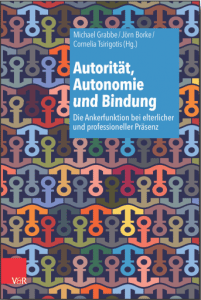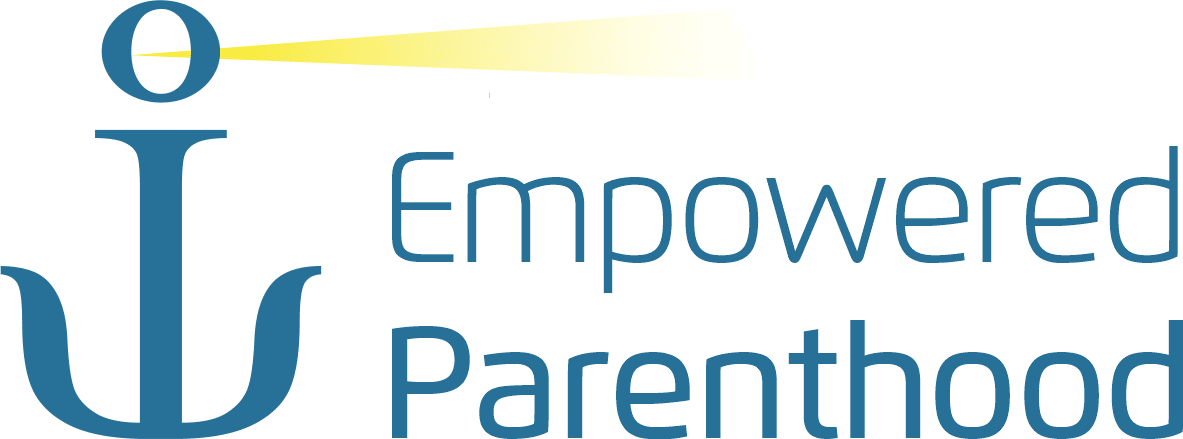JSW 4 december 2017
- Type: Published article
- Application Field: Other
Als leerkracht heb je je handen vol aan oppositioneel gedrag en agressie in de klas. Hoe kun je vorm geven aan de gezagsrol zonder terug te keren naar de klassieke top-down-autoriteit? Verbindend gezag, gebaseerd op principes van geweldloos verzet, biedt je een heldere visie en concrete handvatten om dit te bereiken.
- Language:
- Contact: e.wiebenga@lorentzhuis.nl
- Published: 2017
- DOWNLOAD
tijdschrift conflicthantering, 2017 b 6 Sdu
- Type: Published article
- Application Field: General
Klinisch psycholoog Eliane Wiebenga werkt in haar praktijk
in het Haarlemse Lorentzhuis met gezinnen die ontwricht zijn
door intern huiselijk geweld, waar bestaande therapieën niet of
onvoldoende hielpen. Ze maakt hierbij gebruik van zogeheten
gezagstherapie, die zich richt op herstel van het (ouderlijk) gezag
op een niet-autoritaire, niet-demoniserende manier. De inspiratie
hiervoor komt van de Israëlische hoogleraar Haim Omer.
Wiebenga typeert het als ‘bemiddelen via de meest willige partij’.
- Language: Dutch
- Contact: e.wiebenga@lorentzhuis.nl
- Published: 2017
- DOWNLOAD
Tijdschr Psychother, DOI 10.1007/s12485-017-0206-8
© Stichting Tijdschrift voor Psychotherapie 2017- Type: Published article
- Application Field: General
Psychotherapists working in the Dutch mental health care system (GGZ) for
youth are often confronted with parents who feel terrorized by their child.
The externalizing or internalizing problem behaviour that these children exhibit makes them feel helpless and desparate. Regular escalations combined with children unmotivated to seek help results in both parents and carers veering towards using classic authority based on punishment, force and pressure. The focus of this article is on a new way of looking at authority: connecting authority. The authors link the search for authority to the correlation between authority and forming one’s identity as well as to societal changes in the past decades, giving rise to tensions between authority and attachment. Connecting authority is based on the principles of nonviolent resistance and performs the seemingly impossible task of uniting extremes: hierarchical difference with relational proximity, a loving environment with clear boundaries, resisting the unacceptable behaviour with belief in the other’s potential. This is conveyed in a practical way, as a method that provides anchor points for parents and therapists in their difficult and paradoxical quest to integrate connection with authority, in case of
serious behavioural problems, as well as for ordinary educational issues.
- Language: Dutch
- Contact: e.wiebenga@lorentzhuis.nl
- Published: 2017
- DOWNLOAD
Fam Proc 51:90–106, 2012
- Type: Published article
- Application Field: Entitled dependence
Dutch tranlsation of:
Parent Training in Nonviolent Resistance for Adult Entitled Dependence
- Fam Proc 51:90–106, 2012
- Language: Dutch
- Contact: ddolberger@gmail.com
- Published: 2012
- DOWNLOAD
Familien Dynamik
- Type: Published article
- Application Field: Other
Mit Hilfe des gewaltlosen Widerstands werden Eltern unterstützt, die sich mit Suizidandrohungen von
Kindern bzw. Adoleszenten konfrontiert sehen. Die Behandlung hilft den Eltern, aus einer Position der Hilflosigkeit zu
rück zur elterlichen Präsenz zu gelangen, von Isolation zu Verbundenheit, von Unterwerfung zum Widerstand, von Eskalation zur Selbstkontrolle, von Distanzierung und Feindseligkeit zu Fürsorge und Unterstützung. Das Ziel des Konzepts ist, den Eltern zu helfen, konstruktiv mit der Bedrohung umzugehen. Besonders wichtig ist es, dabei auch das Leid der Eltern miteinzubeziehen. Das Vorgehen ist auch dann realisierbar, wenn ein junger Mensch, der mit Suizid droht, nicht zu einer Mitarbeit bereit ist.
- Language: German
- Contact: ddolberger@gmail.com
- Published: 2015
- DOWNLOAD
Family Process, Vol. x, No. x, 2015 © 2015 Family Process Institute
doi: 10.1111/famp.12129- Type:
- Application Field: Other
Parent training in nonviolent resistance was adapted to deal with situations of suicide
threat by children, adolescents, and young adults. The approach aims at reducing the risk
potential and the mutual distress surrounding the threat-interaction. Parent training in
nonviolent resistance has been shown to help parents move from helplessness to presence,
from isolation to connectedness, from submission to resistance, from escalation to self-
control, and from mutual distancing and hostility to care and support. Those emphases
can be crucial for the diminution of suicide risk. Parents show good ability to implement
the approach and report gains on various areas over and beyond the reduction in suicide
threat. A particular advantage is that the method can be used also in cases where the
young person threatening suicide is not willing to cooperate.
- Language: English
- Contact: ddolberger@gmail.com
- Published: 2015
- DOWNLOAD
Vandenhoeck & Ruprecht
- Type: book
- Application Field: General

- Language: German
- Contact: grabbe-m@t-online.de
- Published: 2013
- DOWNLOAD
M. Grabbe, J. Borke & C. Tsirigotis (Eds.) Authority, autonomy and attachment (German: Autorität, Autonomie und Bindung). Gӧttingen: Vandenhoek & Ruprecht.
- Type: Published article
- Application Field: Other
Non Violent Resistance (NVR) is a therapeutic approach towards violent, aggressive, controlling and self-destructive behaviour, initially developed for responding to these behaviours in young people. Based on working with children who have experienced child abuse, this paper introduces the author’s integration of child-focused family therapy and NVR, its theoretical background, ethos and methodological applications. [wpex] In particular, it develops the concept of the caring dialogue, a process of communication around basic psychological needs in a child and the parents’ or carers responsiveness to such needs. The paper examines constraints to child signalling of distress and constraints to parental responsiveness, which lead to the breakdown of the caring dialogue, and outlines methods which can help to reverse this process. The methods which are introduced are based on helping parents utilise reconciliation gestures in order to sensitize themselves for unmet child need. [/wpex]
- Language: German
- Contact: peter@partnershipprojectsuk.com
- Published: 2013
- DOWNLOAD
Systeemtheoretisch Bulletin, 31 (1), 5 – 27 (in Dutch)
- Type: Published article
- Application Field: General
Inspired by the methods and underlying principles of nonviolent resistance in the socio-political sphere, Non Violent Resistance (NVR) as a therapeutic approach supports parents, carers and the community in resisting aggressive, violent and self-destructive behaviour in young people. Multi-stressed families with histories of trauma and difficult social relationships often experience high levels of such problem behaviour. [wpex] Due to the multiple challenges faced by these families, which often relate to social isolation, conflict-laden relationships with the wider family and community, long-term involvement with statutory agencies, and severely fractured parent-child relationships, a specific adaptation of NVR has been developed for working with this client group. The model includes the utilisation of previously difficult relationships within the wider family and community and the transformation of difficult patterns of interaction through the use of methods of nonviolent direct action, recognising and safe relationships within the wider network around the family and encouraging the use of safe others as supporters in the process of resistance, establishment of cooperative relationships with professionals through shared action, using NVR methods as trauma therapy, and the use of child-focused methods aimed at restoring a caring dialogue between parent and child. [/wpex]
- Language: English
- Contact: peter@partnershipprojectsuk.com
- Published: 2013
- DOWNLOAD
Journal of Systemic Therapies, Vol 32(4), Dec 2013, 79-93. doi: 10.1521/jsyt.2013.32.4.79
- Type: Published article
- Application Field: General
Parents of violent children, who underwent training in nonviolent resistance (NVR), were compared with a wait-list control. Each parent reported on him/herself as well as on the other parent. Although both parents reported significant improvements in measures of parental helplessness, only fathers reported significant improvements on three scales measuring parent-child escalation processes, namely, power-struggles, parental submission, and negative feelings. Mothers were found to suffer more than fathers from escalating conflicts with the child both at the beginning and the end of treatment. Although fathers reported that escalation of both parents with the child lessened with treatment, mothers witnessed no significant improvements. Results were interpreted as showing that the special plight of mothers poses a still unmet challenge to NVR and probably to other modalities of parent training.
- Language: English
- Contact: nirifat@zahav.net.il
- Published: 2014
- DOWNLOAD


